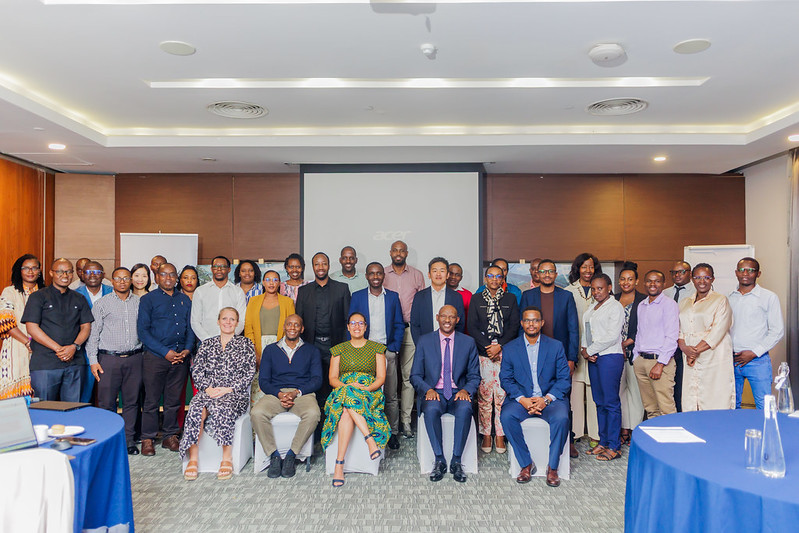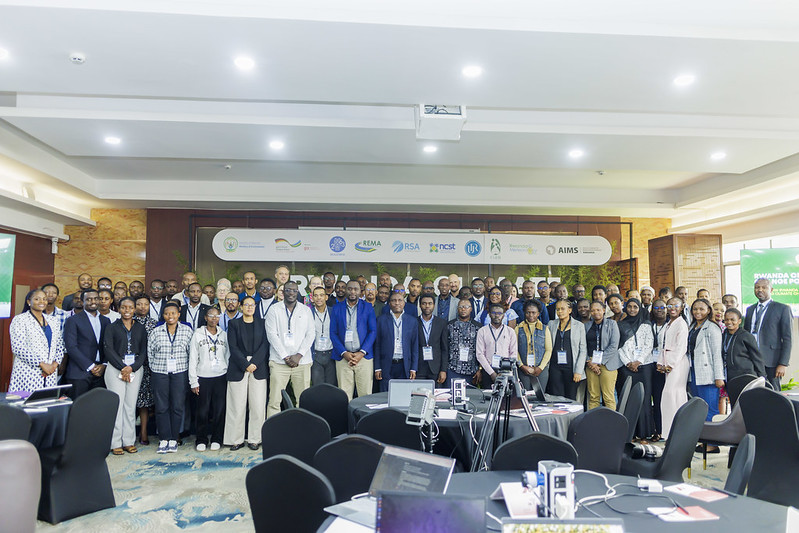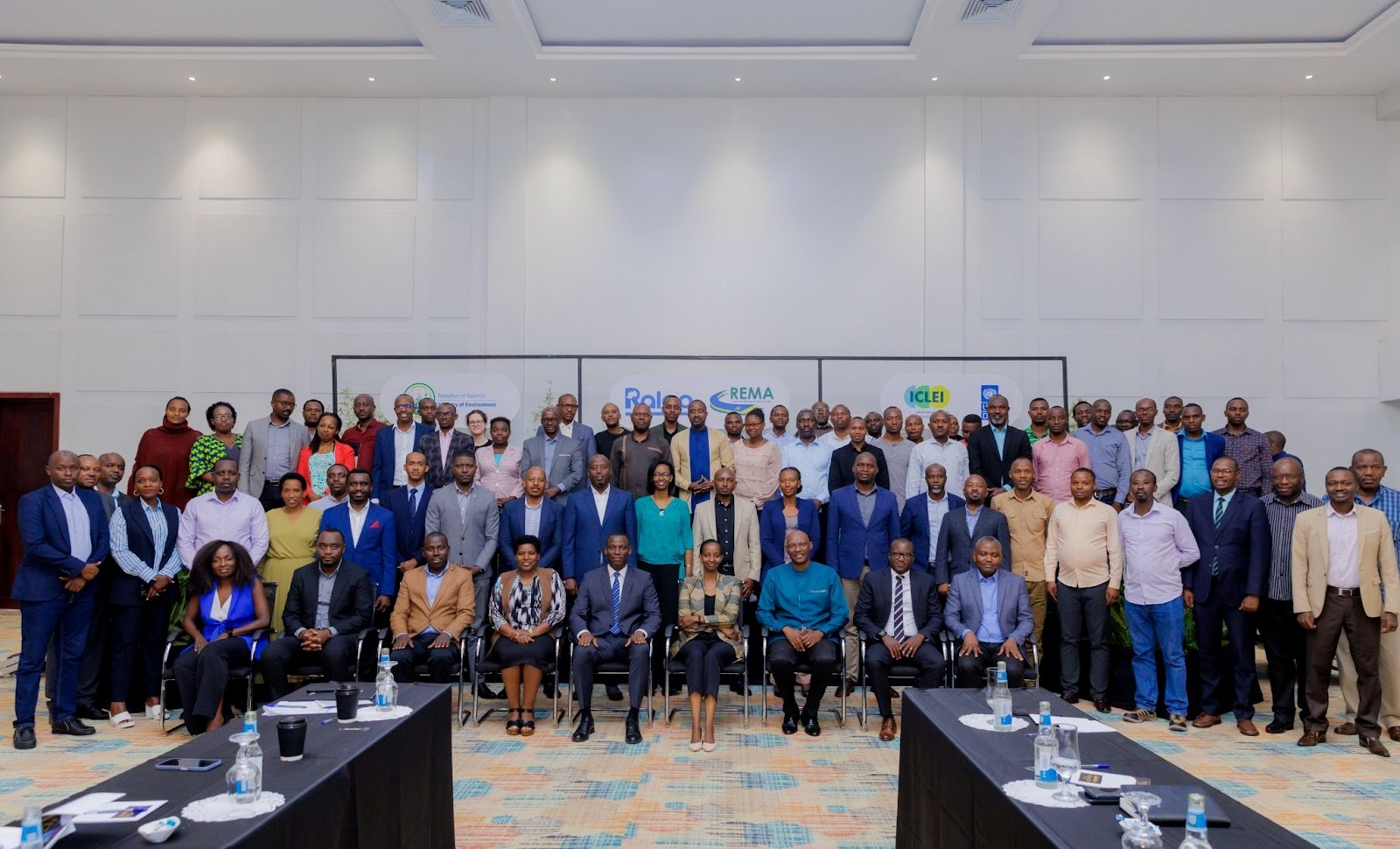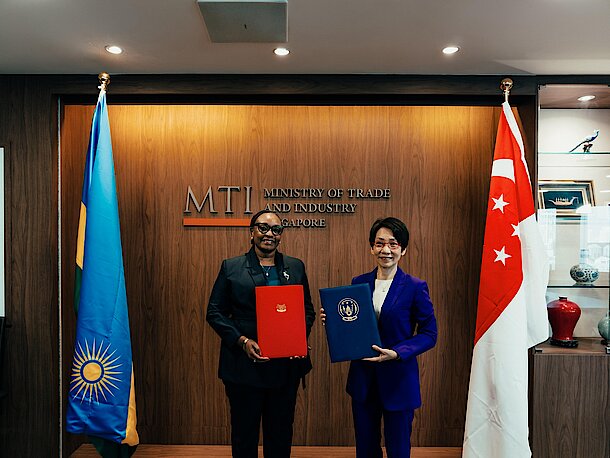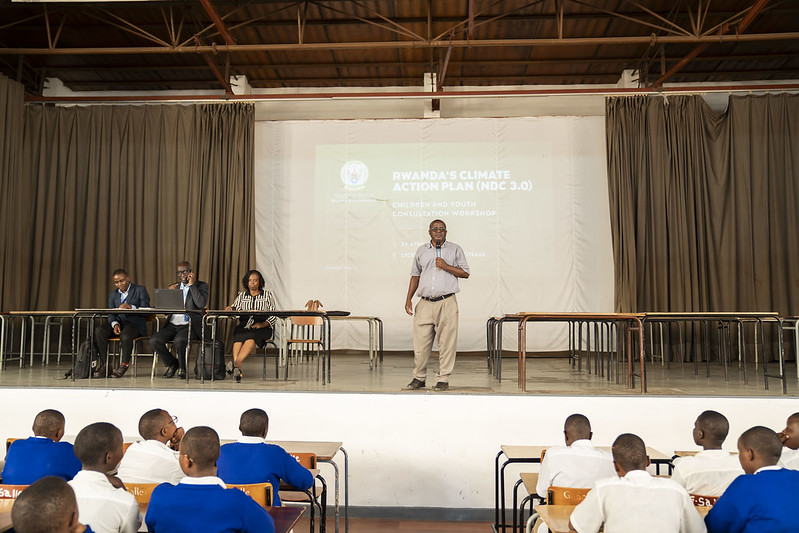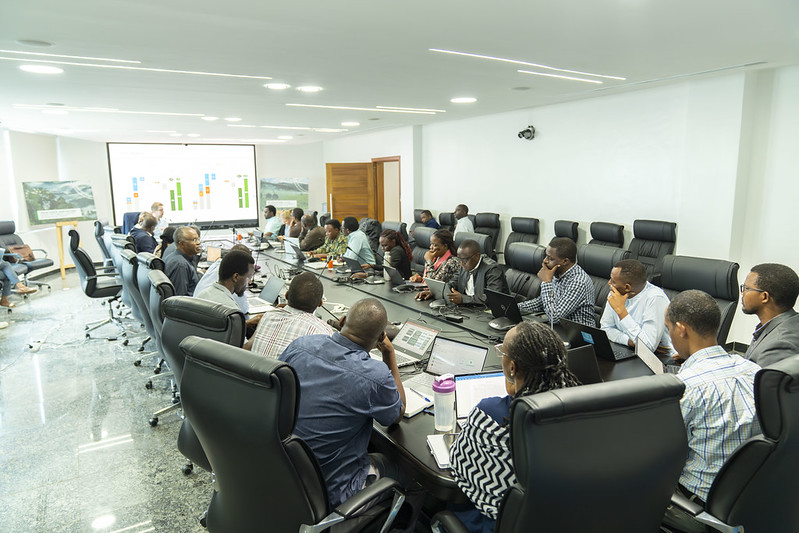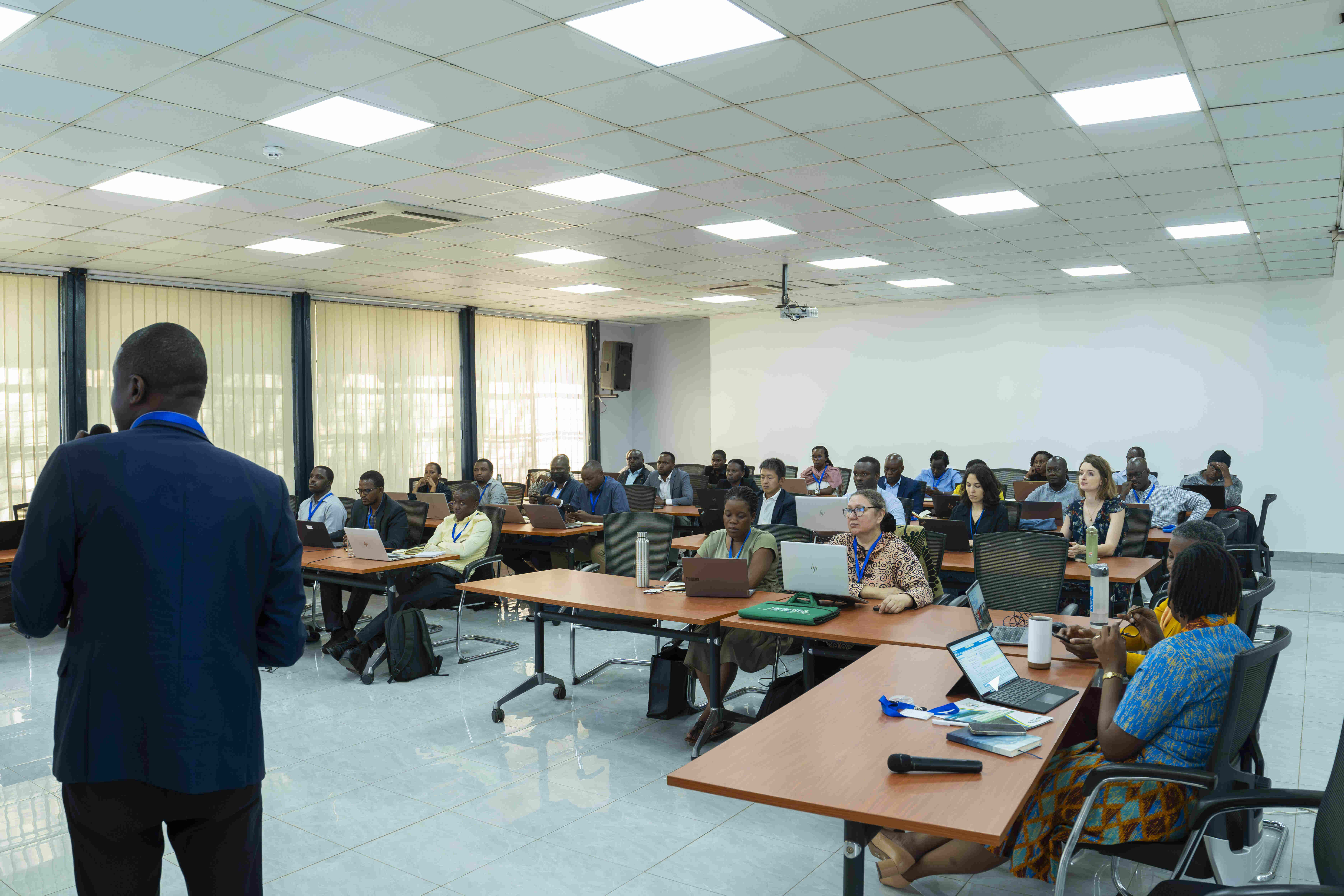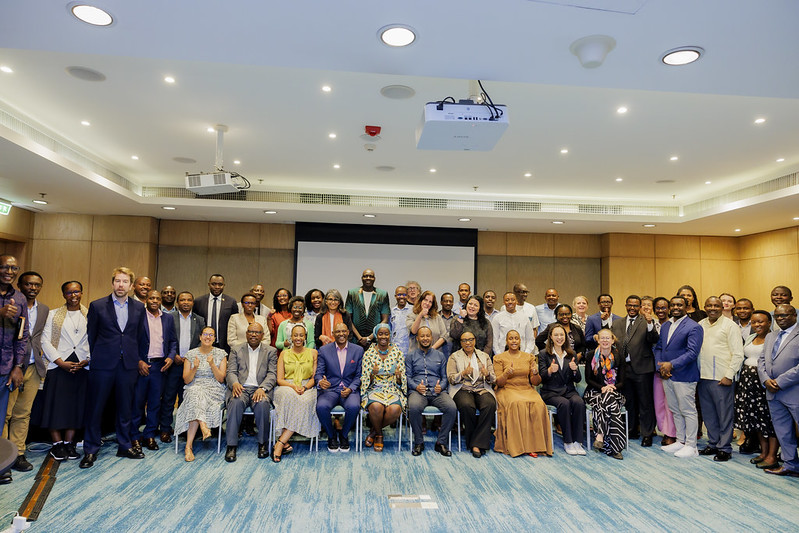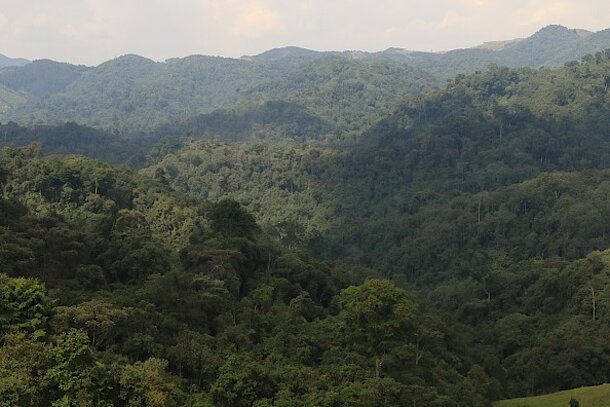
From ambition to action: Rwanda’s climate resilience plan
On Saturday, December 12, 2020, global leaders are meeting to discuss a problem on many of our minds: climate change. The extraordinary virtual Climate Ambition Summit has been convened by the United Nations, United Kingdom and France, in partnership with Chile and Italy, and comes five years to the day since the historic Paris Agreement was adopted.
In Paris, Rwanda joined the rest of the international community to set the goal of limiting global temperature rise, by this century, to well below two degrees Celsius above pre-industrial levels, and to pursue efforts to limit the temperature increase even further to 1.5 degrees Celsius. This target is important because any additional increase would spell greater disaster, not just for developing nations, but wealthy countries as well.
At the summit, in which Rwanda will participate, countries will share revised commitments under the three pillars of the Paris Agreement: mitigation, adaptation and finance. This is welcome news. Despite clear evidence of the dangers of climate change, many of the world’s major polluters have not yet detailed how they will reduce their emissions in line with the Paris Agreement. The summit provides the opportunity for nations to step up and commit to tangible actions to limit pollution and restore nature for the benefit of all.
In Rwanda, we are acutely aware of the impact that warming is already having on our country. The extreme floods and landslides that have tragically killed many, and destroyed crops and property, will only get worse if climate change continues unabated.
That is why Rwanda has a bold vision to become a carbon-neutral and climate resilient economy, as enshrined in the newly adopted Vision 2050. To achieve this target, and meet our Paris Agreement commitments, the country has prepared an ambitious climate action plan with the goal to reduce our greenhouse gas emissions by 38 per cent by 2030 compared to a business as usual scenario. We are also strengthening the resilience of our society, economy and natural ecosystems to be better prepared for a warmer world and wilder weather.
Some of the major steps we have taken to become more resilient include establishing the Rwanda Green Fund, which has mobilised almost 200 million dollars for mitigation and adaptation investments and created close to 150,000 green jobs.
We have also prioritised reforestation and conservation and today more than 30% of the country is covered with forests. This year alone, Rwandans will plant more than 25 million trees to contribute to global climate action and restore our natural environment.
A National Cooling Strategy has been put in place to phase out the dangerous warming gases used in cooling systems and the newly established African Centre of Excellence for Sustainable Cooling and Cold Chain, hosted at the University of Rwanda, will support this effort. These initiatives are part of our commitment to achieving the goals of the Kigali Amendment to the Montreal Protocol - the single most impactful action to limit climate change with the potential to avoid up to 0.4 degrees of warming by 2100.
Rwanda is also investing in the circular economy and, as a founding member of the African Circular Economy Alliance, recently established the Cleaner Production and Climate Innovation Centre. The centre will provide access to cutting edge technologies and will boost competitiveness and environmental compliance. The fast-growing e-waste recycling industry in Rwanda is also limiting emissions and protecting our health.
Sustainable urbanisation will also be critical to ensure Rwandans live in green and healthy cities. That’s why we are working with partners to develop the Green City Kigali, strengthen green building minimum compliance standards and ensure secondary cities across the country are sustainably planned and built.
The cost of Rwanda’s Climate Action Plan over the next decade is estimated at 11 billion dollars, made up of 5.7 billion dollars for mitigation and 5.3 billion dollars for adaptation. The effort to mobilise these resources will be cross-sectoral and financing will come from government, development partners, civil society organisations and the private sector.
Achieving this plan will require significant financial resources, capacity building and technology transfer, as well as the full engagement of both national and international partners and stakeholders. And Rwanda is not alone. Many other developing nations will also need to work with others around the world to reach their climate targets.
The Covid-19 pandemic has shown that none of us are resilient until all of us are resilient. That is why it’s critically important for all nations to play their part. Rwanda is committed to addressing climate change and preparing for its impacts because no country can solve the climate crisis alone.
If we are ambitious and work together, however, we can achieve the goals of the Paris Agreement and avoid the worse effects of climate change - for ourselves and future generations.
By Hon. Dr. Jeanne d'Arc Mujawamariya, Minister of Environment
Topics
More posts
Rwanda to ensure the country’s updated Climate Action Plan is gender responsive and inclusive
A diverse array of stakeholders have met to enhance the integration and tracking of gender responsive and inclusive actions in Rwanda’s revised…
Rwanda Hosts First-Ever Climate Science Symposium to Bridge Research and Policy for Resilient Future
The inaugural Rwanda Climate Science Symposium (RCSS) has brought together scientists, policymakers, and development partners for a landmark two-day…
Local Government Stakeholders Meet to Contribute to Rwanda’s Enhanced Climate Action Plan
Local government representatives, policymakers, and climate experts have gathered for a two-day consultation workshop to share insights and…
RWANDA AND SINGAPORE SIGN IMPLEMENTATION AGREEMENT UNDER ARTICLE 6 OF THE PARIS AGREEMENT
The Government of Rwanda and the Government of Singapore have today signed an Implementation Agreement pursuant to Article 6 of the Paris Agreement,…
Youth Voices Shape Rwanda’s Updated Climate Action Plan
Young people from across Rwanda gathered for a Youth Consultation Workshop on Rwanda’s new Climate Action Plan, known as a Nationally Determined…
Young Rwandans Have Their Say in Shaping Rwanda’s New Climate Action Plan
As Rwanda updates its Climate Action Plan, known as a Nationally Determined Contributions (NDC 3.0), young Rwandans have been given the opportunity to…
Stakeholders Review Preliminary Results of Rwanda’s updated Climate Action Plan (NDC 3.0) Consultations
Stakeholders from across government institutions, civil society, the private sector, and development partners have come together for a three-day…
Stakeholder Consultation Workshop held to Shape Rwanda's Enhanced Climate Action Plan (NDC 3.0)
Stakeholders from across Rwanda’s public institutions and private sector, development partners, and civil society have come together for a NDC 3.0…
Rwanda Launches Nationwide Consultations to Develop New Climate Action Plan (NDCs 3.0)
Today, the Ministry of Environment, the Rwanda Environment Management Authority (REMA), other line ministries, delopment partners, CSOs and private…
